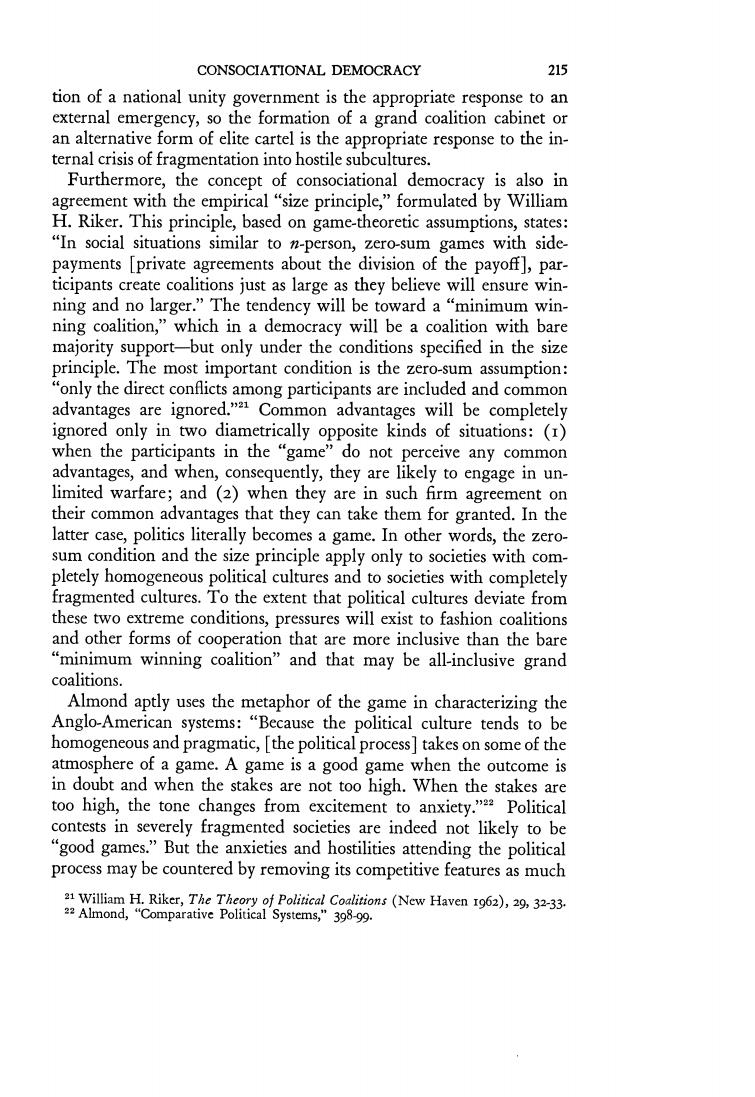正在加载图片...

CONSOCIATIONAL DEMOCRACY 215 tion of a national unity government is the appropriate response to an external emergency,so the formation of a grand coalition cabinet or an alternative form of elite cartel is the appropriate response to the in- ternal crisis of fragmentation into hostile subcultures. Furthermore,the concept of consociational democracy is also in agreement with the empirical"size principle,"formulated by William H.Riker.This principle,based on game-theoretic assumptions,states: "In social situations similar to n-person,zero-sum games with side- payments [private agreements about the division of the payoff],par- ticipants create coalitions just as large as they believe will ensure win- ning and no larger."The tendency will be toward a "minimum win- ning coalition,"which in a democracy will be a coalition with bare majority support-but only under the conditions specified in the size principle.The most important condition is the zero-sum assumption: "only the direct conflicts among participants are included and common advantages are ignored."Common advantages will be completely ignored only in two diametrically opposite kinds of situations:(I) when the participants in the "game"do not perceive any common advantages,and when,consequently,they are likely to engage in un- limited warfare;and (2)when they are in such firm agreement on their common advantages that they can take them for granted.In the latter case,politics literally becomes a game.In other words,the zero- sum condition and the size principle apply only to societies with com- pletely homogeneous political cultures and to societies with completely fragmented cultures.To the extent that political cultures deviate from these two extreme conditions,pressures will exist to fashion coalitions and other forms of cooperation that are more inclusive than the bare "minimum winning coalition"and that may be all-inclusive grand coalitions. Almond aptly uses the metaphor of the game in characterizing the Anglo-American systems:"Because the political culture tends to be homogeneous and pragmatic,[the political process]takes on some of the atmosphere of a game.A game is a good game when the outcome is in doubt and when the stakes are not too high.When the stakes are too high,the tone changes from excitement to anxiety."Political contests in severely fragmented societies are indeed not likely to be "good games."But the anxieties and hostilities attending the political process may be countered by removing its competitive features as much 21 William H.Riker,The Theory of Political Coalitions(New Haven 1962),29,32-33. 22 Almond,"Comparative Political Systems,"398-99